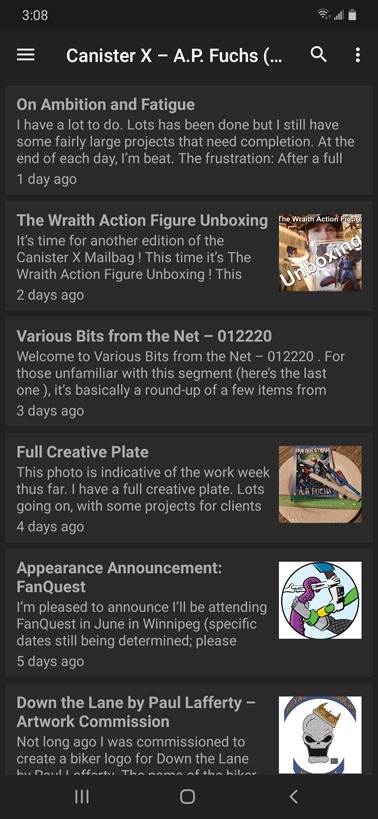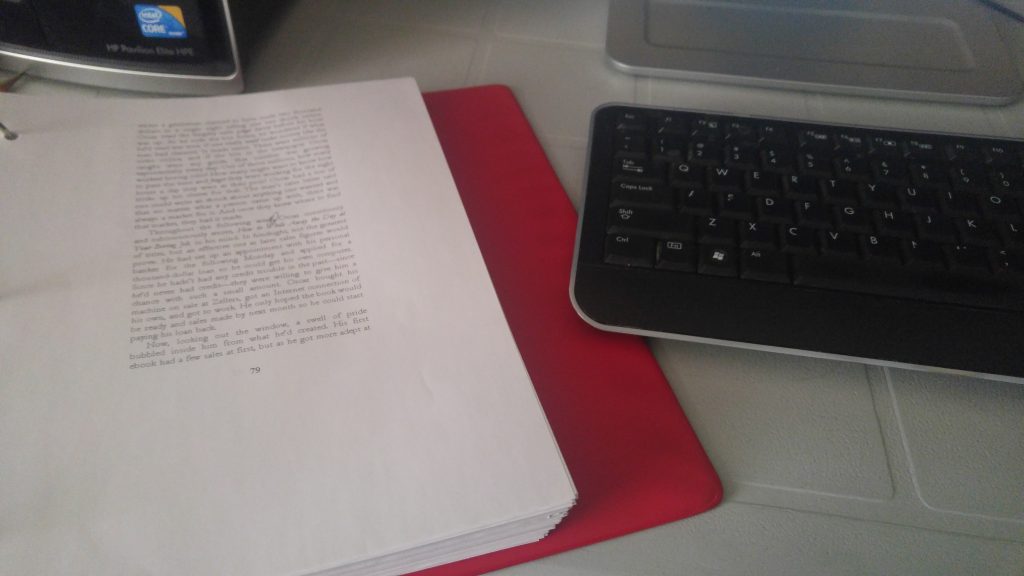My Writing Process – Don’t Really Have One
For some reason I’ve recently been giving a lot of thought to my writing process and I came to the conclusion I don’t really have one. At least, not in the conventional sense when someone thinks about how an author writes a book. Usually it involves notions of slaving away over the words, crafting each sentence to perfection, doing rewrite after rewrite, line editing, copy editing, proofing and so forth.
None of that applies to me. Not in that sort of depth, anyway.
My first book, A Stranger Dead, and from what I recall, involved a lot of that: slaving away over each word. Being a first book and first effort, that’s how I thought book writing was done. And, hey, if that’s how you write your books, by all means, whatever works, right?
But for me, I’ve been following the same writing process for at least a decade. It’s bare-bones simple, and doesn’t require a lot of brain power other than the first draft, and even then, I’m not exhausting my mental energy to the point of being brain dead after a writing session.
Though there are exceptions, this is typically how I write a book:
– A title or basic premise comes to me
– I let it stew in the back of my head so my subconscious can work things out without me consciously thinking about them
– The first line of the story comes to mind
– I get to work on the first draft
On the first draft:
I’ve only outlined a book once, and that book is still in process as of this writing. I will also be outlining another book to finish it off because it involves time travel and I got myself into a possible paradoxical mess with the thing so I need to iron out the details so it’s paradox-free (something that’s very important when writing time travel stories). Other than that, I simply write a book as it comes to me, scene by scene, sentence by sentence, word by word. I don’t think about what I’m writing. I just write it as I see it in my head and that’s it. I’ve written enough books over the years to know the golden rule that every word needs to serve the story, so I don’t have to worry about scenes being cut later because they’re just fluff.
And that’s it. I write the story start to finish and do not edit as I go along.
Sometimes I know how it’s going to end, sometimes I don’t. Sometimes when I do know how it’s going to end—and since I let the story tell itself—that ending either doesn’t happen or doesn’t happen how I originally envisioned it. But whatever. I let the story do the talking, not me.
After the first draft is done, I run a spellcheck and print it out.
I leave the book alone for a while, sometimes a week, sometimes a month, then get to work on the second draft.
On the second draft:
By leaving the book alone, I had a chance to mentally distance myself from it before going at it with fresh eyes.
You see, you write and read at different speeds, so while taking my pen to my first draft, I read it at a reader’s rate and am able to smooth out choppy sentences or catch words I repeat—every writer has a go-to word or phrase in their first draft—and make sure story continuity lines up. It’s this latter point that always astonishes me: the way your subconscious keeps track of everything between writing sessions and keeps the story in order. I might add a sentence or two or delete a couple redundancies. Nothing fancy.
I then type up my second draft edits and print the book out again for draft three.
On the third draft:
This is the polish draft, and after having done a solid clean-up on it in draft two, this draft is a way to catch anything I missed the first time and do a spit shine on it. Seldom are any substantial changes made. Again, it’s done at reader’s rate so I just read along and tweak things here and there.
These changes are typed up and the book goes off to my editor.
I wait for the editor to do what I pay him for then get the book back from him.
On the editor’s draft:
At this point I’m already getting sick of my own story after having been through it three times, so all I do during this phase is go through my editor’s edits and only his edits. I agree with 95% of them; the remaining 5% are usually matters of taste and preference and not actual errors.
My editor’s work is now complete. He gets paid, and all he has to do is await his editor’s copy in the mail when it’s ready.
I take the editor’s draft and do a three-quarter format on the book.
On the partially-formatted book:
The book is now resembling what the reader will eventually see in terms of layout and trim size. Chapter headings are decorated and basic front and back matter are put in place. The only thing that’s really missing are the headers and footers.
I print it out.
Since I consider my editor’s draft draft number four, this partially-formatted book is my fifth and final draft in which I go through it and catch anything my editor or I might’ve missed. What’s helpful about this stage is the new layout of the book. There are less words per line at a 6 x 9” trim size than your standard 8.5 x 11” piece of paper. Things read differently and any error seems to jump out all the clearer.
These mistakes are fixed and are typed into the computer.
I then go on to finish the book with its final bells and whistles.
On the bells and whistles:
These include adding the headers and footers, the title cards and any ad matter in the back.
At this stage, it’s just an issue of making sure all the formatting is in place, and the book itself is done.
Paperback formatting is always done first, then the various eBook formatting required for the different platforms comes after.
On the off-chance I catch a mistake while formatting, I then have to sort through the different files and make the change in each. It’s annoying and a pain but has to be done.
Then that’s it. It’s off to press.
Of course, during the preliminary format I get my page count thus can create my cover, but that’s not the topic of this post.
But that’s my process. Five total drafts, four of which are mine.
A long time ago a writer friend gave me the greatest bit of publishing advice I’ve ever received. I’ve repeated it a bunch of times to writers in all sorts of forums and venues over the years, and it’s this: it’s only a book. And that’s how I treat my novels: they’re only books. That’s all they are. They’re stories. They’re fantasies. They’re entertainment. Like I always say, kingdoms won’t rise and fall based on something I’ve written so I’m long past the stage of obsessing over my stories.
I just write the damn thing, clean it up, then share it with you.
That’s the writing process, if you want to call it that.
That’s it. Thank you. Good night.




